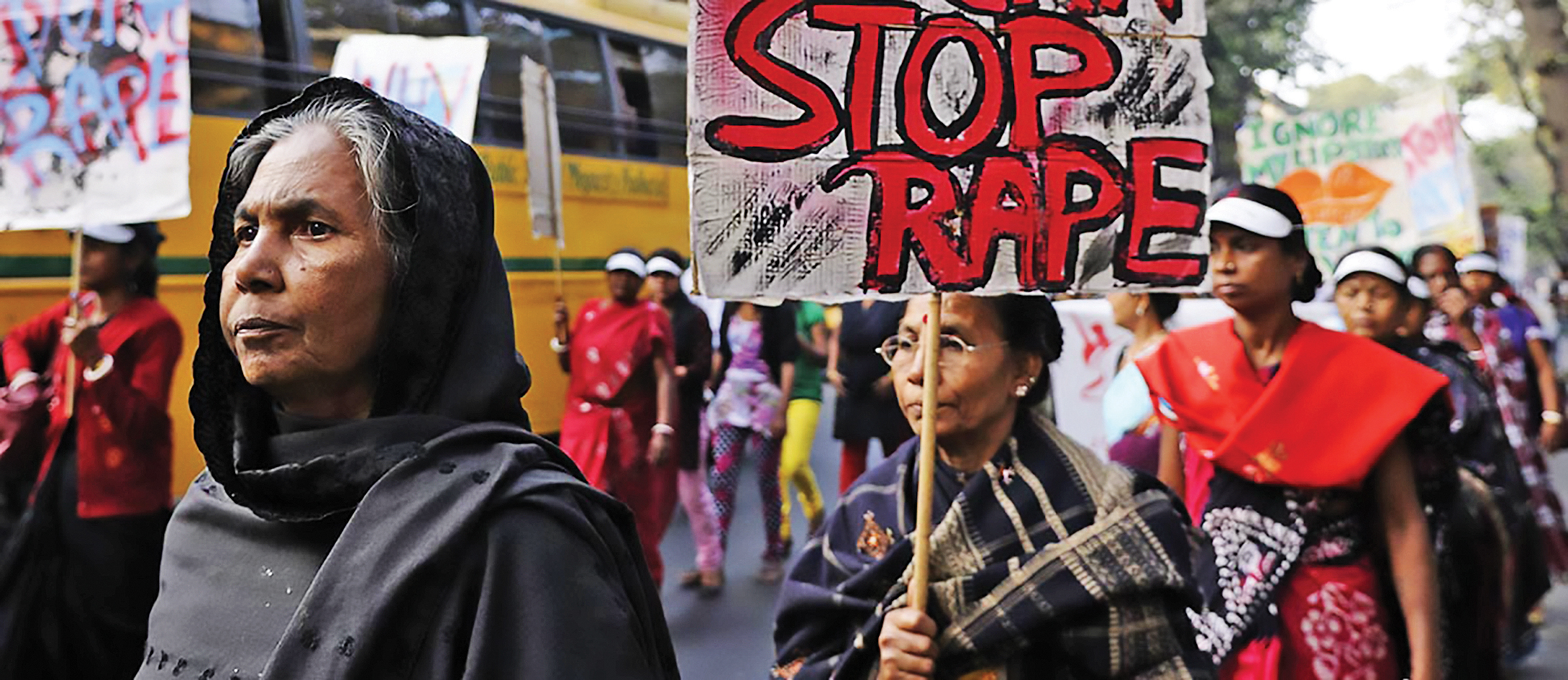
“She lay there, punctured by multiple stabbing wounds, one screwdriver still wedged into her flesh. She appeared abandoned by all of us.”
Almost 13 years ago, this was how Tuktuk Ghosh, an Indian Administrative Service officer, described the gruesome sight of her sister’s dead body at their paternal house in the upscale Patliputra colony in Bihar’s Patna.
On December 2, 2006, her sister, 53- year-old Papiya Ghosh, a well-known History professor at Patna University, and her 70-year-old maid Malti Devi were found brutally murdered. While Malti Devi’s intestines were found on the bed, medical reports said Ghosh was stabbed 33 times after she was blinded. The police investigation established the murders as acts of suppressing resistance in a burglary attempt. The seven accused, all arrested and convicted later, cited burglary as the only motive. The stolen items were recovered later.
The sense of “abandoning” her 27-year-old elder sister to the most brutal side of human depravity must be haunting another woman in Hyderabad today. According to a report in The Hindu, the veterinarian, on her way home from work, called her sister and said, “I’m feeling scared. A few people in a lorry are staring at me. I don’t know what to do. I can’t leave the vehicle.” The call disconnected and subsequent attempts by the family to contact the victim only met a switched-off phone. Her charred body was found at an underpass on the Hyderabad-Bengaluru national highway by a milk vendor next morning.
The police investigation shows that she had gone for a medical check-up to Gachibowli in Hyderabad. On her way back, when she went to Tondupally toll plaza to pick up her scooter, she discovered the tyre was flat. While she was trying to get to a repair shop, she was offered unsolicited help by the prime accused, a lorry driver. He insisted even after she refused his offer. This was when she had called her sister out of fear. She was then abducted, gang-raped, and gagged to death by the prime accused and three of his accomplices. On discovering she had died, the four wrapped her in a blanket and took the body in their lorry to Shadnagar where they set it on fire.
Despite invoking clichéd expressions, from the Hobessian “nasty and brutish” existence of the nature of brutalities to Arendt’s mostly decontextualised “banality of evil”, nothing explains the moment when one realises the horrors humans are capable of inflicting on each other. And what about the moment when the 27-year-old veterinarian stared at the impending brutality in fright, then in horror and then in possible resignation?
It’s easy to get into the customary law and order audit after such encounters with our most savage selves. From the absence of police presence and patrolling to the lack of a prompt response to the missing complaint, the litany of grouses is a known turf. The latter might still be valid but it would be empirically contentious as to how effective it could be as a bulwark against our most brutal sides, out on the prowl to devour the most vulnerable.
In terms of the social contract view of the state, it is equivalent to asking the security contractualist about what went wrong with the “security contract”. Is it realistic to hold the police accountable for every single act of crime or violence in a society that has been witnessing an insidious rise in how individualities and collectivities are violently expressing themselves? Do we seriously think that the state could have prevented all the acts of barbarity — especially against women — in this country? Such expectations from the preventive function of policing are desirable but not very realistic.
A prompt response by the police to the initial complaint about the missing veterinarian could have, hypothetically speaking, opened few positive possibilities. Police also need to understand why victims tend to call close family members and not the force entrusted with citizen protection and law enforcement. The answer could be complex from factors including socio-cultural conditioning to the trust deficit, which plagues the police-citizen relationship.
What, however, surfaces in response to such widely reported cases are the fault-lines of the social and administrative response —or rather the lack of it — to everyday India’s encounters with heinous crimes. Such fragilities rather apathy, take each day into account before manifesting as a monster with such ghastly consequences.
A case in point was what a female Indian Police Service officer wrote in the aftermath of the horrific Nirbhaya case in December 2012. In a piece for Sunday Mid-Day, 1991 batch IPS officer Marie-Lou Fernandes put the dangers of ignoring banal infringements in perspective. She wrote, “The greater horror is in the mundane, not in the sensational. The daily molestations and assaults that women face, ‘petty’ crimes often burked by law enforcers, powerless victims regularly turned away at the police station, routine injustices that fall through the cracks of criminal justice system ‘non-cognizable’ offences that mask the true nature of an increasingly violent society – that is the real horror since it conditions our tolerance. We normalise these daily horrors into acceptable social patterns, and we as a society deteriorate”.
While the savage end of someone’s life can get caught in a commentary on effective policing, it’s the feeling of being not too far from most brutal embodiments of our depravities that strikes at the brittle contract we enter into with co-existence.
www.newslaundry.com
On the principle of 'Sarvajan Hitaya, Sarvajan Sukhaya' -- Welfare for all, Happiness for all…
With hundreds reported missing in Delhi this year, this guide explains how families can use…
The case came to light after a 35-year-old woman from Panipat alleged that she had…
During the investigation, CCTV footage helped identify the suspects, according to Delhi Police
The launch took place during the inauguration of the Delhi Police Exhibition Hall at Connaught…
The 28-year-old factory owner was taken to Satyawadi Raja Harish Chandra Hospital in Delhi, while…